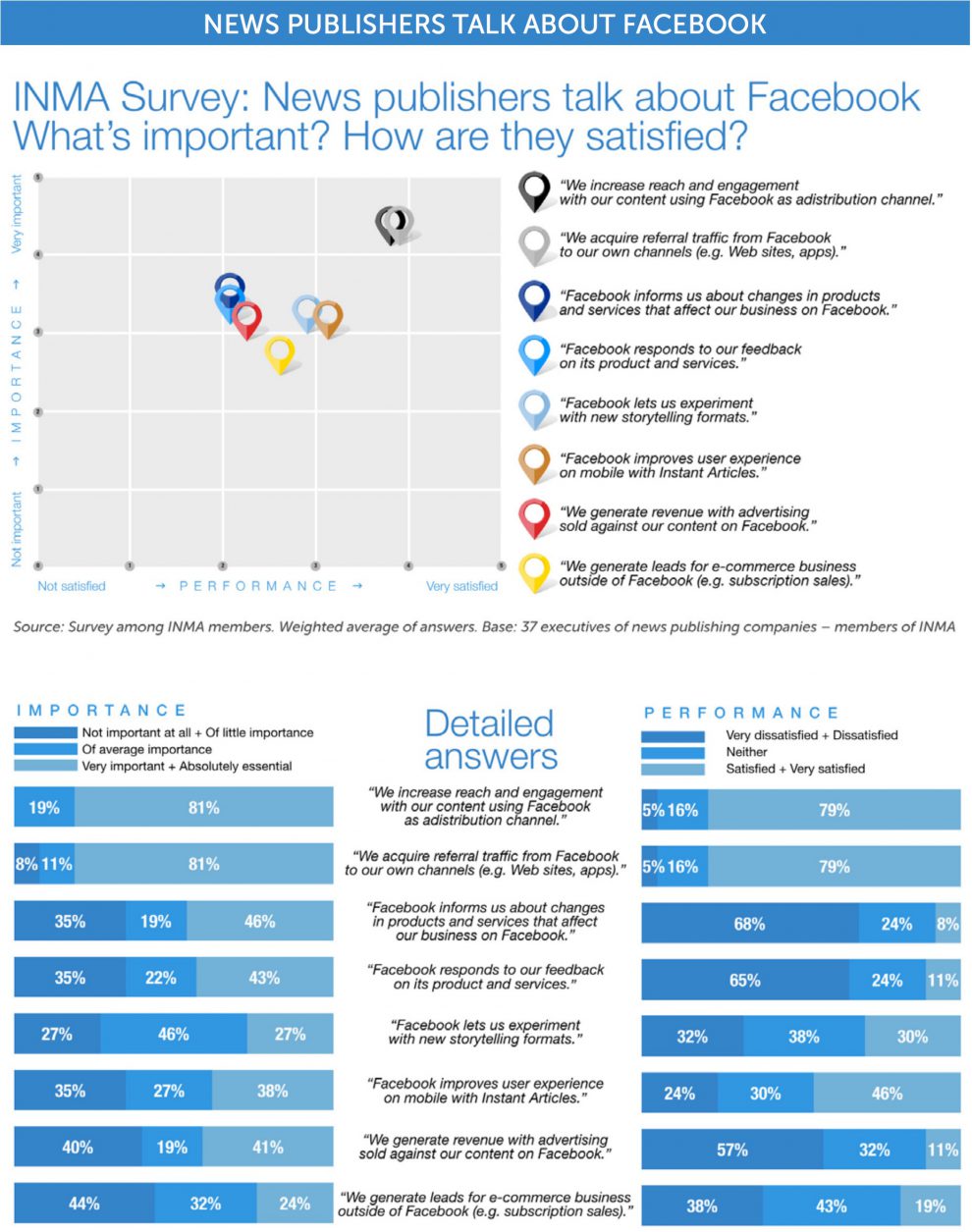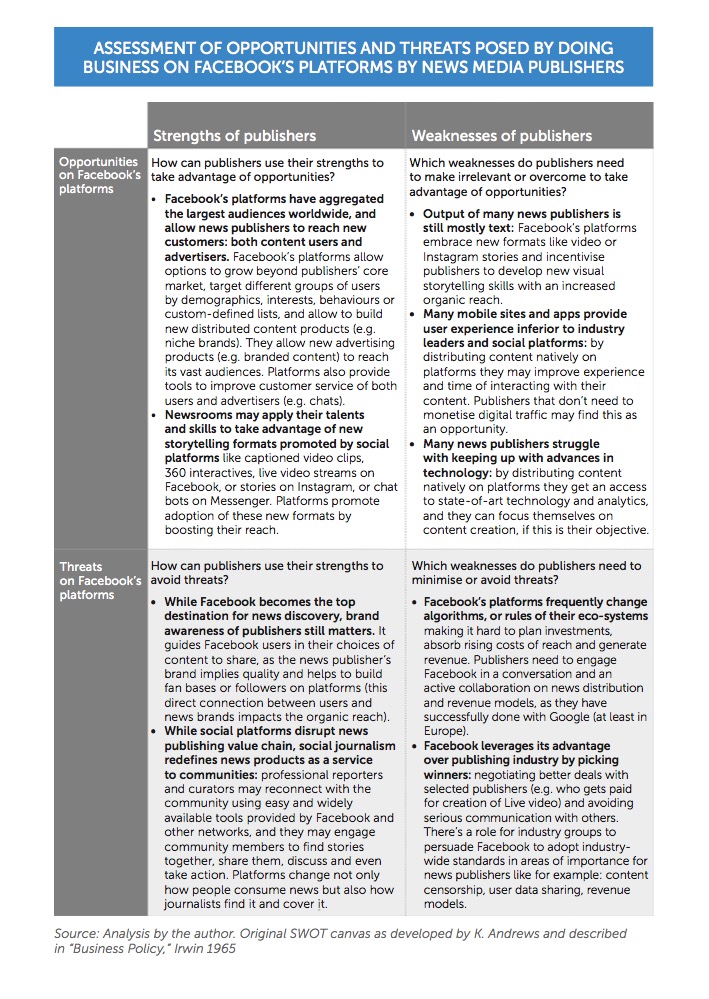For publishers, Facebook is the proverbial 800-pound gorilla in the room: They know they have to deal with it, but they aren’t always sure of the best strategy for approach.
A new report out today from the International News Media Association attempts to deal with that problem by providing an overview of how Facebook works and outlining some ways publishers can use the platform to reach readers and potentially generate revenue. The report was written by Grzegorz Piechota, a former Nieman Fellow who is now a research associate at the Harvard Business School.
The 74-page document covers subjects such as the thinking behind Facebook’s algorithms, the psychology of sharing social content, how Facebook approaches advertising, and other topics which are likely familiar to Nieman Lab readers, but which are assembled into one package here.
“Many publishers view doing business with Facebook as a sort of Faustian dilemma: They can get rich, but they might lose their souls,” Piechota writes. “Or, to be precise, they can get access to vast audiences and make some money but risk diluting their brand and losing their direct relationship with users.”
As part of the report, INMA conducted a survey of 37 news executives from Europe and the United States, most of them from large operations. (More than 80 percent are at sites with 10 million monthly uniques or more.) On average, the executives said that Facebook accounts for about 30 percent of total visits to their websites.
Eighty-one percent of the publishers said the most important reason their outlets use Facebook is to improve their reach and engagement, and 79 percent of those respondents said they were satisfied with Facebook’s ability to help them do that.
Meanwhile, 68 percent of respondents said they weren’t satisfied with how Facebook informed them about product changes. And while 41 percent of the publishers said generating revenue with advertising on Facebook is important, 57 percent said they’re dissatisfied with how they can generate revenue from Facebook.

In the study, Piechota outlines both the threats and opportunities Facebook presents to news organizations. Facebook, he writes, allows publishers to reach a massive global audience and also provides tools, such as live video or 360-degree photos, for publishers to tell stories in new ways. However, Facebook’s algorithms can pick winners and change the rules for publishers.

The full INMA report is available here. It’s free if you’re an INMA member, but if you’re not, it’ll set you back $695.
2 comments:
It’s impossible for mere mortals to access these materials.
Good day! Do you know if they make any plugins to help
with Search Engine Optimization? I’m trying to get my blog
to rank for some targeted keywords but I’m not seeing very good results.
If you know of any please share. Cheers! You can read similar blog here:
Eco blankets
Trackbacks:
Leave a comment